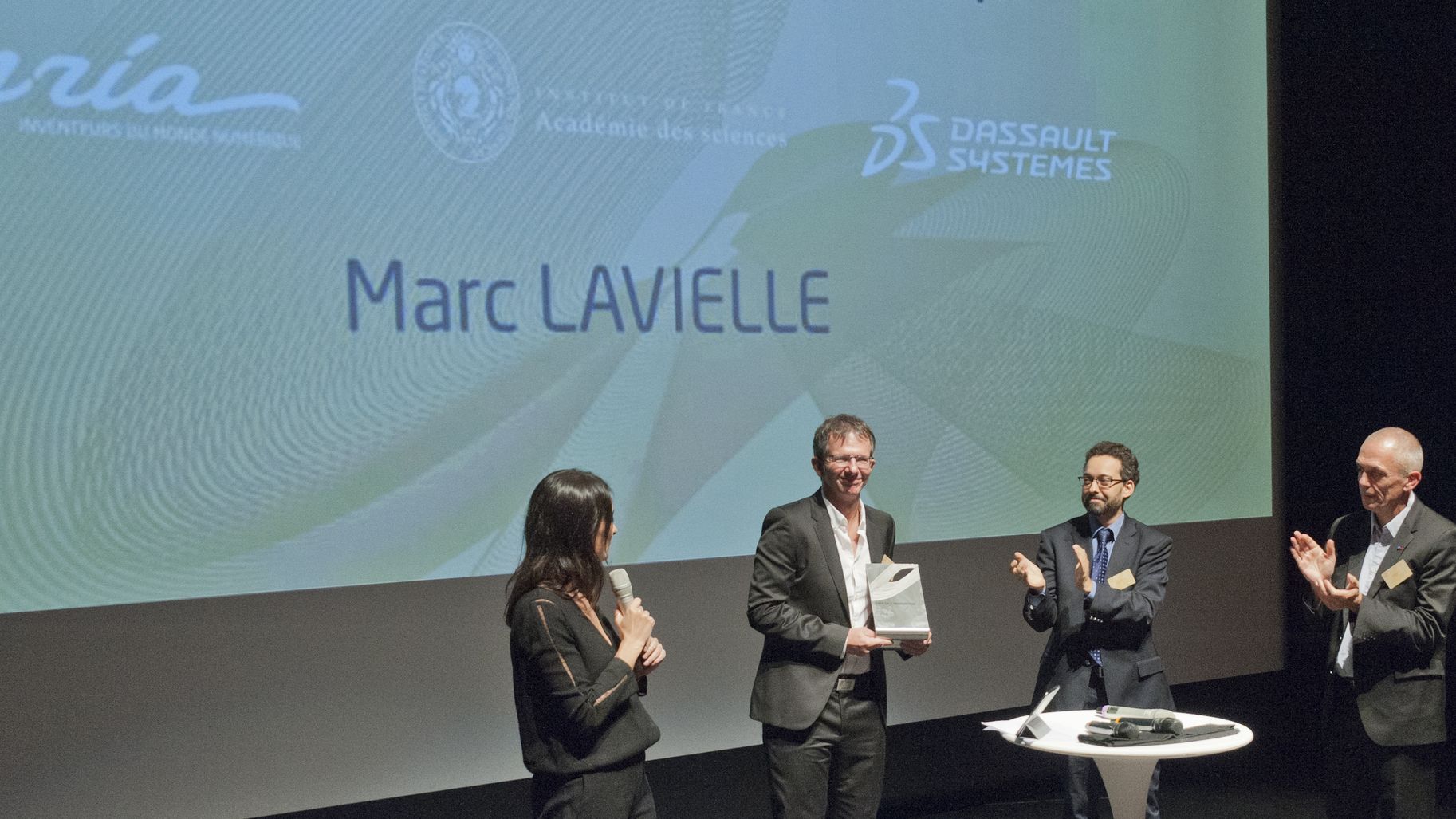Marc Lavielle : Inria – French Académie des Sciences – Dassault Systèmes Innovation Award
Date:
Publish on 15/01/2020

Some careers occasionally take an unexpected turn, and Marc Lavielle is a perfect example of this. Today he is an Inria research director leading the Popix team, and yet he started his professional life as... a typographer. After three years in the printing world, Marc Lavielle eventually decided to change direction, and so in 1981 he went to the Paris Sud University in Orsay. On the agenda was a diploma of higher education and a degree in mathematics, followed by a post-graduate diploma in statistics. He then left for the Central University of Venezuela in Caracas, where he wrote a PhD on deconvolution and rupture detection methods in geophysics. In parallel, he occupied the position of assistant professor in statistics.
At the beginning of the 1990s, Marc Lavielle returned to France and became a senior lecturer at Paris Descartes University. Then, in 1998, he became a professor at Paris Descartes IUT (University Institute of Technology). "I have worked on new modelling algorithms since the beginning of my thesis , explains Marc Lavielle.These tools and associated methods have proven to have real potential in the field of pharmacometrics, such as analysing data from clinical trials ."
In 2003 he set up a working group called Monolix, bringing together researchers from Inria, Inserm (French National Institute for Health and Medical Research) and Inra (French National Institute for Agricultural Research) who specialised in statistics, biostatistics and pharmacology. This active group began to develop software, which was also called Monolix. "The pharmaceutical laboratories quickly showed interest in our work , Marc Lavielle affirms. It was notably the case of Johnson & Johnson, who enabled us to finance the recruitment of a post-doctoral student for two years. This gave serious impetus to the development of the Monolix software. "
En 2007, Marc Lavielle est détaché à Inria Saclay. L'objectif : franchir une nouvelle étape dans l'élaboration de Monolix. « Inria offre un cadre bien mieux adapté à ce type de projet que l'environnement universitaire », souligne Marc Lavielle. L'interface avec le monde industriel est également un atout-clé d’Inria. En 2009, la direction du transfert et de l’innovation (devenue direction générale déléguée au transfert et aux partenariats industriels) met en place un consortium regroupant des industriels tels que Novartis, Roche, Johnson & Johnson, Sanofi Aventis et, un peu plus tard, AstraZeneca. « Ces partenaires ont chacun financé le projet à hauteur de 40 000 € par an. Nous disposions alors des moyens nécessaires pour réellement concrétiser nos efforts , résume Marc Lavielle. Par ailleurs, ces partenaires nous ont donné une vision industrielle sur nos travaux et ont contribué au choix de nos axes de développement. »
Deux ans plus tard, en 2011, Monolix était devenu un logiciel abouti, capable d'avoir des applications concrètes dans l'industrie.
"At this stage, Monolix was accessible via open source , remembers Marc Lavielle. However there was a growing number of support requests, and the industrialists using the software expressed the need for better visibility with regard to the future and the durability of the software. It was necessary to shift from the research world to the business world. "
This step was taken from 2011, with the creation of a spin-off called Lixoft, within the context of IncubAlliance, the technological incubator of the teaching and research establishments of the Paris-Saclay campus. Nevertheless, the originator of the Monolix project did not join the company himself, preferring to remain in his position at Inria. "Commercialising software is a different profession , Marc Lavielle insists. I wanted to continue doing what I loved - developing new methods and furthering our knowledge. Nonetheless, we rely on Lixoft to integrate these new ideas into the Monolix software and bring them to industry. From this perspective, Lixoft is our outlet, our essential link to the pharmaceutical world. " An approach that proved convincing, since Lixoft received the Oséo 2011 prize for the creation of innovative technology companies, in the "creation/development" category.
Besides the quality of his research work, what characterises Marc Lavielle is therefore his modern vision of research - a vision in which the academic world and the industrial world are two sides of the same coin. "Today in pharmacometrics, there is a real porosity between these two worlds , stresses Marc Lavielle. Many students do their theses in a university environment and then go on to work in industry. Inversely, some scientists come back to academic research from industry. We need to make the best use of these opportunities for cross-fertilisation, so that it benefits innovation as much as possible. It is time for more statisticians to have an applied vision of their work and reach out to industry and towards putting their research into practice. "
Marc Lavielle wrote his PHD at the Central University of Venezuela in 1990. On his return to France, he became a professor at Paris-Descartes IUT (University Institute of Technology). In 2003, he became special advisor to the MSTP (Mission scientifique technique et pédagogique– the scientific, technical and educational programme) at the French Ministry of Higher Education and Research. Three years later, the Monolix project took shape. The following year, Marc Lavielle founded the Statistics and Health research group and, in parallel, he was seconded to Inria-Saclay. Two years later, in 2009, Marc Lavielle became a member of the French Higher Council for Biotechnology. In 2011, he became head of the Popix team at Inria Saclay Île-de-France and in 2012, the following year, research director.